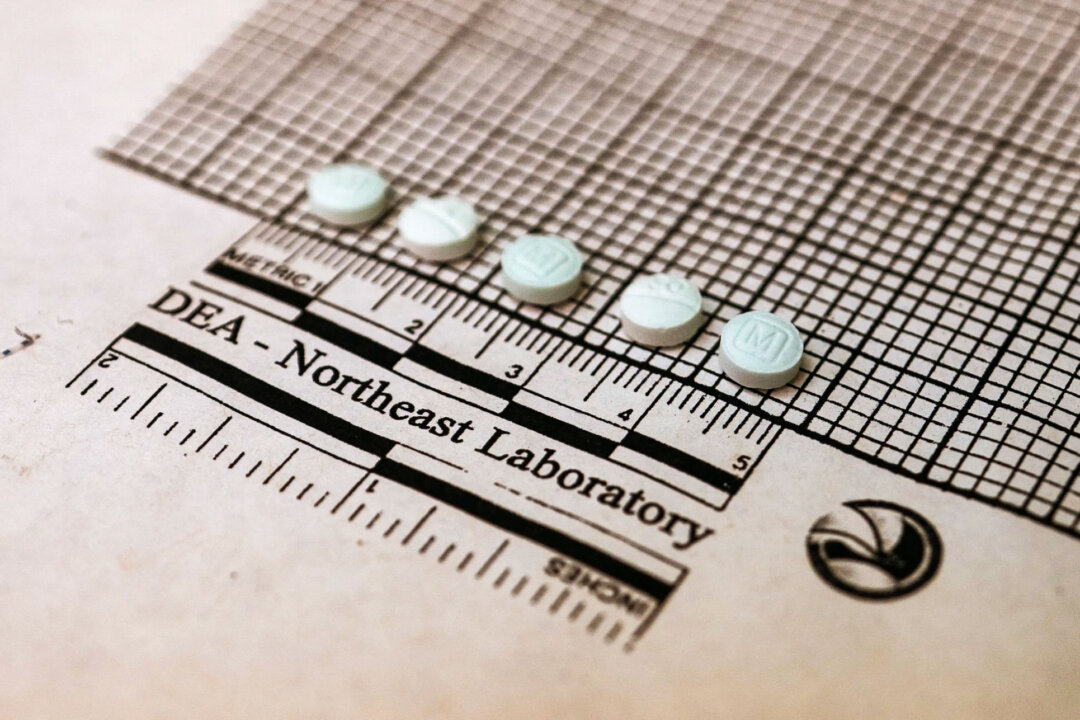The United States has identified China as the primary source of illicit fentanyl.
The U.S. Attorney’s Office for the Southern District of New York on Dec. 18 announced charges against three foreign nationals who have been extradited to the United States for allegedly trafficking Chinese fentanyl precursors and instructing traffickers on how to manufacture and smuggle the drugs into the United States.
The case is emblematic of how illicit fentanyl traffickers have worked to evade U.S. sanctions and agreements with China to block the flow of the deadly drugs into the United States.
“The defendants are alleged to have aggressively pursued methods to circumvent our ability to stem the flow of the poisons into this country and to bring tons of potentially deadly chemicals to the United States,” Acting U.S. Attorney Edward Y. Kim said in a statement.
Xiang Gao, a Chinese national; Oleksandr Klochkov, a Ukrainian national; and Igors Kricfalusijs, a Latvian national, were arrested in Morroco in April and extradited to the United States on Dec. 11 for a federal court appearance.
The three allegedly used their connections with China-based chemical manufacturers to broker deals for more than 5 kilograms of fentanyl and 50 kilograms of methamphetamine precursor chemicals; shipped them to New York, Austria, and Spain; and instructed drug traffickers on how to use the precursors to make finished illicit drugs.
The alleged traffickers were aware of sanctions and bans on the finished drugs and repeatedly advertised access to Chinese factories capable of producing narcotics precursors, federal attorneys say.
“For example, during one meeting, when GAO acknowledged that fentanyl is illegal in the U.S. and China, KLOCHKOV explained that, as a result, fentanyl ’must be created, not purchased,’” the U.S Attorney’s Office stated.
The indictment charges the three with one count of conspiracy to distribute fentanyl and methamphetamine, which carries a minimum 10-year prison sentence and a maximum of life imprisonment. It also charges the defendants with one count of conspiracy to import the precursor chemicals with the intention to manufacture finished illicit narcotics, one count of importation of the precursors, and one count of conspiracy to commit money laundering, each of which carries a maximum sentence of 20 years in prison.
Illicit fentanyl has become the leading cause of death for Americans aged 18 to 49 and has been linked to some 400,000 deaths in the United States since 2016.
The United States has identified China as the primary source of illicit fentanyl. The problem has worsened despite agreements between the two nations, according to law enforcement and congressional reports.
After securing agreements from Chinese authorities to block shipments of illicit fentanyl beginning in late 2016 and later in 2019, there were dips in the trend of fentanyl-related deaths in the United States.
However, the Chinese communist regime slowed or stopped cooperation more than once, saying the United States had touched on sore spots such as human rights and Taiwan.
Despite periods of cooperation, fentanyl-related deaths have continued to trend sharply upward as China-based manufacturers produce an increasingly broad range of chemicals that can later be finished as fentanyl or an analog, a drug chemically similar to fentanyl, often with small molecular changes.
The Food and Drug Administration has approved fentanyl as a synthetic opioid used for managing severe pain, such as during open-heart surgery or through epidurals for pregnant women in labor. Illicit fentanyl and its analogs are often mixed with other drugs and are deadly in small doses.
Fentanyl-linked deaths have occurred in individuals who did not knowingly take the drug. A University of Washington study last year found that trace amounts of fentanyl are found in the air and surfaces of public transit vehicles. Health authorities report an increase in young children dying from accidental fentanyl exposure.
Last year, the Drug Enforcement Administration seized more than 80 million fentanyl-laced pills and nearly 12,000 pounds of fentanyl powder, representing more than 390 million lethal doses—more than the population of the United States.
On Dec. 17, a bipartisan group of lawmakers introduced three bills aimed at holding the Chinese Communist regime accountable for its role in the illicit fentanyl crisis.
One bill would set up an interagency task force to combat illicit fentanyl trafficking, another would codify sanctions against Chinese companies involved in the fentanyl trade, and the third would impose civil penalties on Chinese ports, vessels, and exporters for failing to effectively prohibit shipments of fentanyl and related chemicals.

